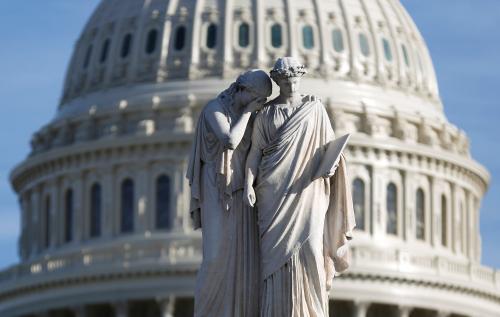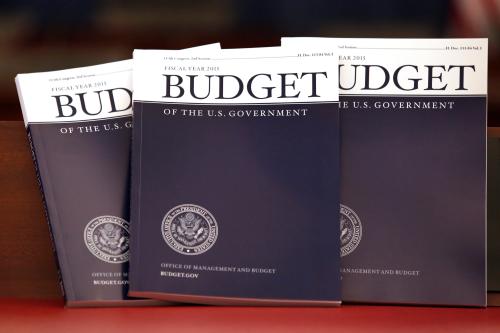In the middle of the night after much unnecessary drama, Congress did what they perceived most of the country wanted them to do: ensured funding for two years for government activities that have broad popular support. They finally ended the craziness of lurching from one artificial shutdown crisis to another and risking default on the national debt. After acting for months as though they were on a suicide mission to discredit the viability of American democracy, the sensible adults prevailed, and the center held, at least for the time being.
The good news in this agreement is that Congress recognized that most of the public values the specific benefits it derives from federal activities and does not want funding arbitrarily slashed in the name of such vague objectives as “smaller government.” The public values a well-trained and well-equipped military; the safety-net health services provided by the Children’s Health Program and Community Health Centers; repairing the damage from wind, flood, and fire; dealing with urgent threats, such as the opioid epidemic; and making other investments in our future well-being, such as funding medical research. Congress recognized that the stupidly arbitrary sequester and the punitive caps on military and domestic spending imposed in 2011 did not allow funding for the activities the public valued and that imposing a debt ceiling to prevent the Treasury Department from paying bills for the services that the public wanted—welching on legal obligations that those services entailed—was just plain insane. Duh? Didn’t we know all this?
After acting for months as though they were on a suicide mission to discredit the viability of American democracy, the sensible adults prevailed, and the center held, at least for the time being.
The downside of the agreement—and it is a whopper—is that, taken together with the recently passed tax bill, it increases the national debt much faster than even optimists believe the economy can grow. The immediate consequence of adding trillions of dollars to the debt, especially in a time of rising interest rates, is that debt service, already the fastest-growing item in the federal budget, will increasingly dominate all budget choices. The public does not want its tax dollars flowing to bond holders at home and abroad rather than to valued federal services. Senator Rand Paul’s quixotic one-man filibuster on Thursday night rightly dramatized the debt-increasing features of the spending agreement, but the same point applies to the tax bill (for which Sen. Paul voted.)
Eventually the sensible center in Congress and the public must recognize that while government services are valuable, they must be paid for eventually. Reducing the growth of debt to sustainable proportions will require bipartisan agreement to rein in future spending growth, primarily in entitlement programs, and increase government revenues. Bipartisan agreement to share the necessary pain of restoring fiscal sanity will not happen before the next election – if then.
However, now that the grown-ups have halted the crazy bickering over federal spending, they have a mandate to move to the other issue the public wants solved right away – immigration. There is strong public support for protecting the “dreamers,” securing the borders in the most cost-effective way possible, and reforming our immigration system in ways that benefit the economy, reduce violence, and do not involve deportations of people with roots in our communities. Now that the adults in Congress have proved themselves capable of responding to what most of the public wants on federal spending, can they also end the cruel uncertainty of lurching from crisis to crisis on immigration by passing a sensible bill? One can hope.
The Brookings Institution is committed to quality, independence, and impact.
We are supported by a diverse array of funders. In line with our values and policies, each Brookings publication represents the sole views of its author(s).






Commentary
The budget deal: The center holds
February 9, 2018